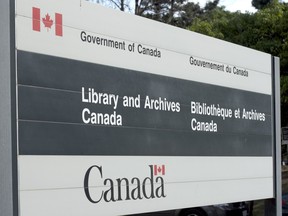Library and Archives Canada is sending the wrong message with its decision to keep Part 2 of the 1986 Deschênes Commission report under seal.

The moments of international justice that followed the Holocaust, from Nuremberg to the Eichmann trial, sent a powerful message about the world’s duty to genocide survivors and the consequences that awaited the perpetrators. Did that message make it to Canadian shores?
Maintaining the report’s confidentiality is a staggering decision given that Canada is home to numerous genocide survivor communities. When survivors seek safety in Canada, they arrive with the understanding that this country shelters legitimate refugees, not the perpetrators of mass atrocities.
Nearly 40,000 Holocaust survivors settled in Canada after the war, and the expectation for post-Holocaust justice is in their DNA. One of these survivors, Ludwig Zabludowski, fought tirelessly to teach Canadians about the Holocaust and to bring Nazi war criminals to justice.
After liberation from a sub-camp of Mauthausen, Ludwig helped fellow survivor and friend Simon Wiesenthal pursue Nazi war criminals in Linz, Austria. Sensing Europe was on the brink of another conflict, Ludwig desperately sought refuge in any country that would accept him. Canada was the first to respond.
Not long after his arrival in Montreal, Ludwig Zabludowski became Lou Zablow, and he built a new life alongside his wife and two sons.
Faced with a lack of Holocaust awareness and a growing number of neo-Nazi groups, Zablow and other survivors founded the Association of Survivors of Nazi Oppression. Together, they successfully lobbied the government to amend the Criminal Code and prohibit hate propaganda in Canada. In 1976, they founded the Montreal Holocaust Memorial Centre — now known as the Montreal Holocaust Museum — only the second such organization in North America.
In addition to the pivotal role of the Canadian Jewish Congress and other Jewish groups, they continued their activism by calling for legislation to ban Nazi war criminals, implement The Hague’s legal definition of war crimes, and adopt articles of the Genocide Convention in the Canadian Constitution.
Failure to act against the presence of alleged Nazi war criminals in Canada sets a dangerous precedent that not only hurts genocide survivor communities but sends a clear message to tomorrow’s genocidaires that they too can find lifelong refuge in this country.
Sarah Fogg is head of marketing, communications and PR at the Montreal Holocaust Museum.